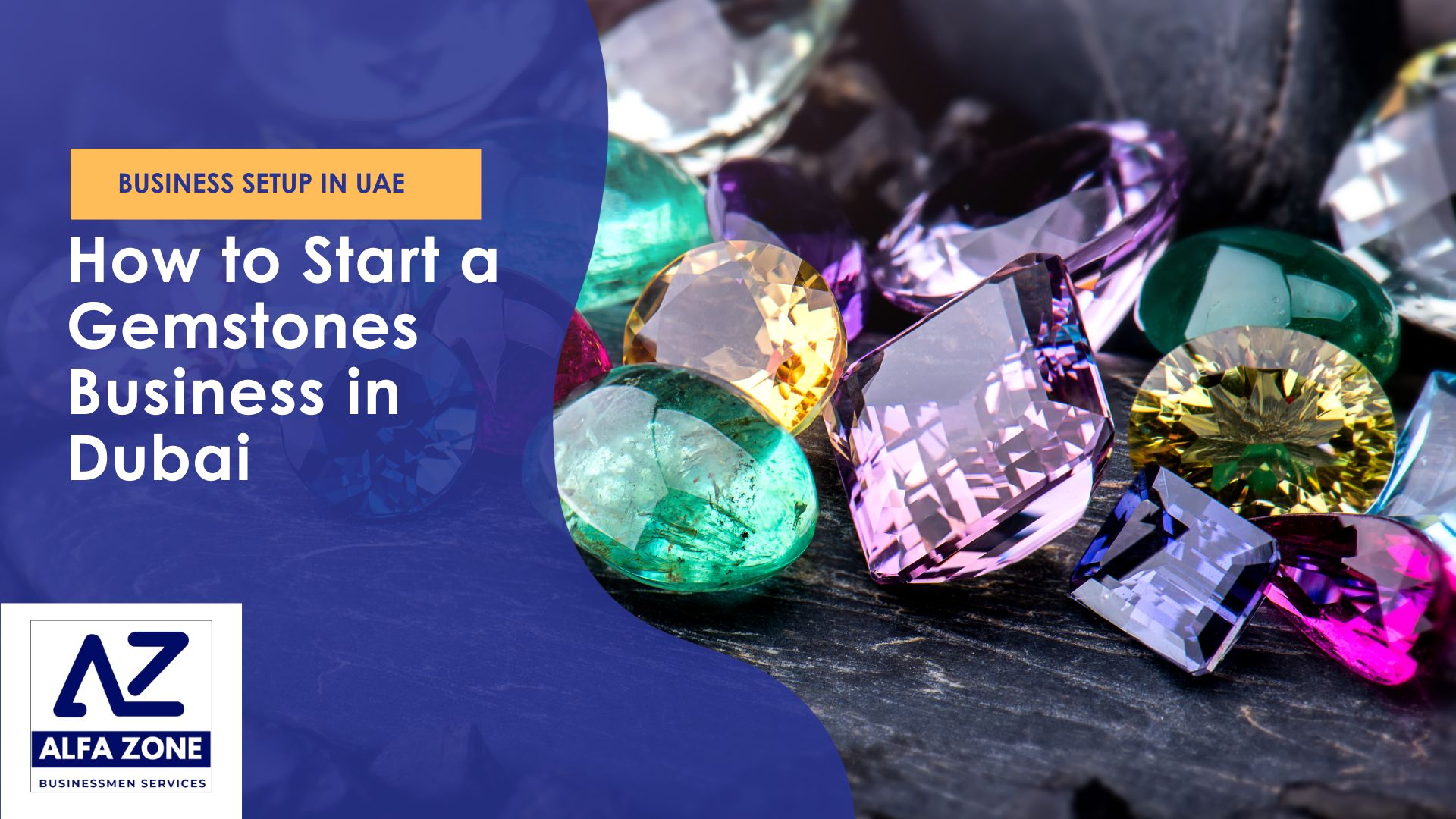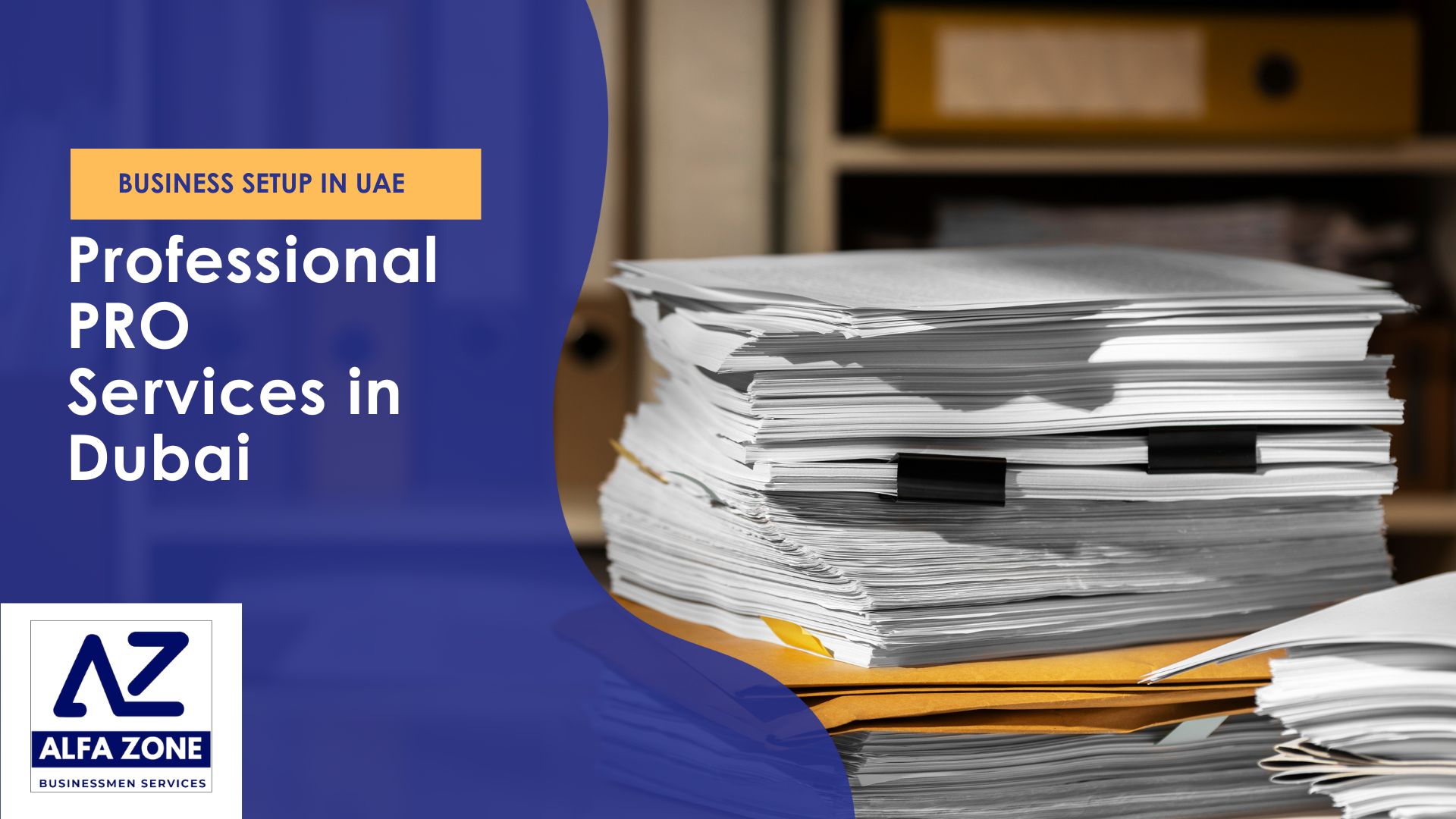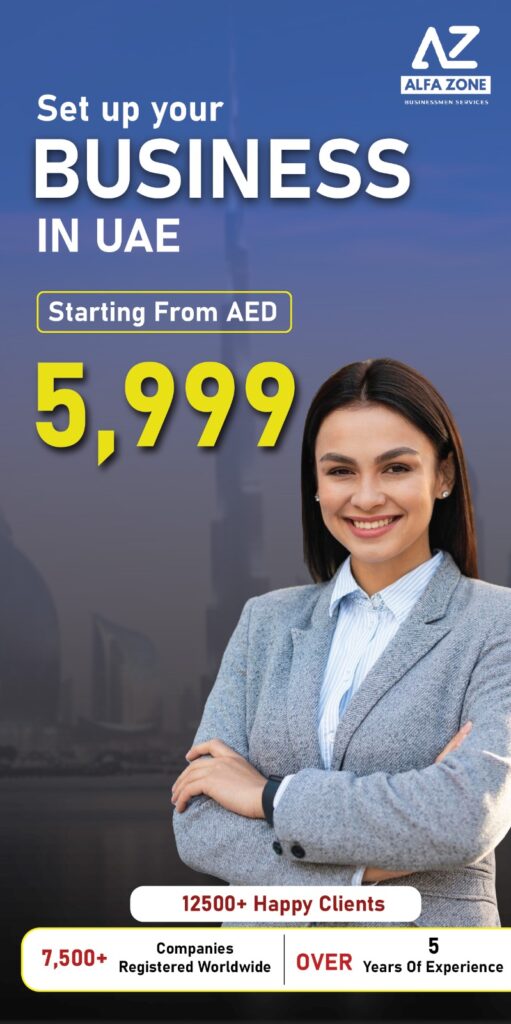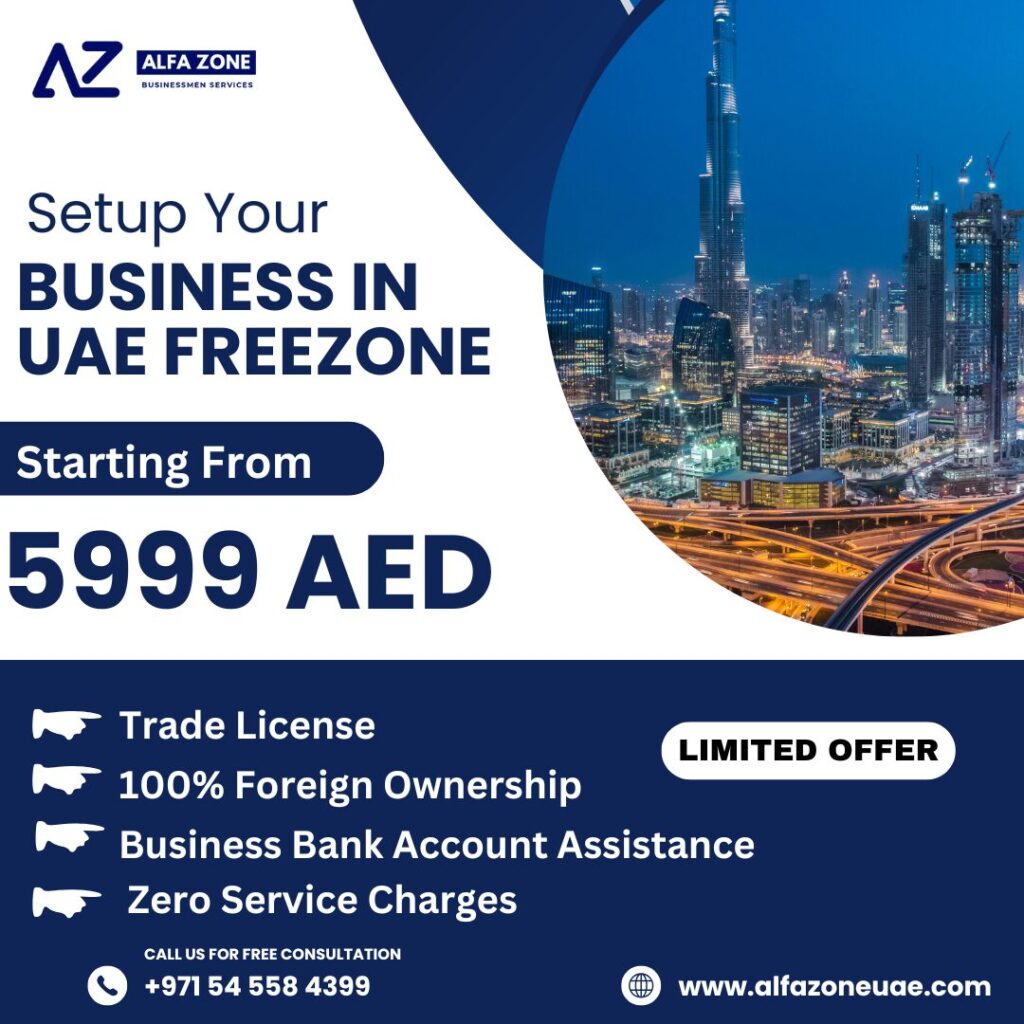How to Start a Gemstones Business in Dubai in 2025
Dubai is a global hub for luxury goods, making it a great location to start a gemstone business. Dubai’s strategic position spanning East and West, combined with a tax-friendly climate and solid infrastructure, provides exceptional potential for gemstone entrepreneurs. This essay goes into the critical elements for starting a successful gemstone business in Dubai.
The city’s strategic position and business-friendly atmosphere make it an ideal option for businesses looking to get into the gemstones industry. Dubai’s status as a gemstone trade hub is bolstered by cutting-edge infrastructure, notably the Dubai Multi Commodities Centre (DMCC), which enables smooth precious stone trading. The DMCC’s diamond exchange, for example, is one of the world’s largest, staging regular tenders and attracting global dealers.
The UAE gemstone sector is undergoing rapid expansion. In 2023, the UAE gems and jewelry market was worth USD 8.34 billion, and it is expected to rise at a CAGR of 6.84% through 2029. This expansion is fueled by rising demand for precious stones such as diamonds, emeralds, sapphires, and rubies, particularly in the Middle Eastern luxury market.
Furthermore, Dubai’s image as a luxury shopping destination attracts a diverse and affluent clientele, which strengthens the Dubai jewelry market. The city’s commitment to upholding high standards in trade procedures makes it more appealing to international investors and traders.
Starting a gemstone business in Dubai puts entrepreneurs in the center of a vibrant market while also providing access to a network of worldwide trade contacts. Entrepreneurs can capitalise on Dubai’s dynamic market and strategic advantages with the proper business setup, which includes securing appropriate permits and adhering to regulatory compliance.
In the following sections, we will look at the key procedures and considerations for starting a successful gemstones business in Dubai, from analyzing market dynamics to negotiating legal frameworks and exploiting marketing methods.

Also Read: How Much to Start a Jewelry Business in Dubai
Check Out Our Easy Online Business Cost Calculator
Understanding the Gemstones Market in Dubai
The gemstone industry in Dubai grows thanks to the city’s status as a luxury shopping destination and its diversified, rich population. The high demand for diamonds, emeralds, sapphires, and rubies fuels a thriving market. Understanding consumer preferences and market trends is critical to success in this competitive environment.
Colored gemstones are also becoming popular in Dubai, with customers looking for distinctive and individualized pieces. The city’s diversified population and cultural love for vivid jewelry add to this trend, making colored gemstones an appealing segment for new entrepreneurs entering the market.
UAE jewelry trends show a shift toward sustainability and ethical sourcing. Consumers are increasingly choosing jewelry manufactured from responsibly sourced materials, such as recycled gold and conflict-free stones. Retailers are responding by acquiring certifications from groups such as the Responsible Jewelry Council (RJC) and encouraging environmentally friendly practices.
Understanding these market dynamics is critical for anyone considering starting a business in Dubai. The city’s strategic location, tax-friendly environment, and strong infrastructure make it an excellent choice for starting a gemstone business. Entrepreneurs can position themselves for success in Dubai’s thriving gemstones market by staying current with industry developments and client preferences.

Also Read: How to Start a Photography Business in Dubai
Check Out Our Easy Online Business Cost Calculator
Legal Framework and Licensing Requirements
Setting up a gemstones business in Dubai necessitates navigating a well-defined legal framework to ensure compliance and smooth operations. Understanding the licensing procedures and regulatory obligations is critical for firms looking to capitalize on Dubai’s booming gemstone market.
Choosing the Right Jurisdiction
Dubai offers two primary jurisdictions for business setup: the Mainland and Free Zones. Each has its own set of regulations and benefits:
- Free Zones: Free Zones, such as the Dubai Multi Commodities Centre (DMCC) and Meydan Free Zone, specialize on commodity trade and provide perks such as 100% foreign ownership, tax breaks, and easier import-export procedures.
- Mainland: The Department of Economy and Tourism (DET) licenses businesses operating on the mainland. This configuration enables businesses to trade directly in the local market and throughout the UAE. Recent reforms have allowed 100% foreign ownership in a variety of industries, including the gemstone trade.
Obtaining a Trade License
To legally operate, businesses must acquire a trade license specific to their activities:
- Final Submission: Submit all documents and pay the required fees to obtain the trade license.
- Select Business Activity: Identify the exact nature of your business, such as “Precious Metals and Stones Trading.”
- Reserve Trade Name: Choose a unique name and reserve it through the DET or relevant Free Zone authority.
- Initial Approval: Obtain preliminary approval for your business activity.
- Prepare Legal Documents: Draft the Memorandum of Association (MOA) and other necessary documents.
- Lease Agreement: Secure a physical office space and obtain a tenancy contract.
Compliance with UAE Regulations
Operating a gemstones business in Dubai entails adherence to specific regulations to maintain integrity and trust:
- Security Measures: Installation of security systems approved by the Security Industry Regulatory Agency (SIRA) is mandatory to safeguard high-value commodities.
- Anti-Money Laundering (AML) Compliance: Businesses dealing in precious metals and stones are classified as Designated Non-Financial Businesses and Professions (DNFBPs). They must implement AML measures, including customer due diligence, transaction monitoring, and reporting suspicious activities.
- Registration with GoAML: Firms must register with the Financial Intelligence Unit’s GoAML platform to report any suspicious transactions.
Business Setup in Dubai: Key Considerations
When planning your business setup in Dubai, consider the following:
- Cost Implications: The cost of obtaining a trade license varies based on the chosen jurisdiction, business activity, and other factors. For instance, establishing a precious metals and gems trading license in the Mainland typically starts at AED 28,040.
- Legal Structure: Decide on the appropriate legal structure, such as a Limited Liability Company (LLC) or Sole Establishment, based on your business needs and ownership preferences.
- Local Sponsorship: While recent reforms have eased foreign ownership restrictions, certain business activities may still require a local sponsor or service agent.
Finally, starting a gemstones business in Dubai requires thorough planning and adherence to UAE commercial standards. Entrepreneurs can create a renowned and successful presence in Dubai’s flourishing diamond market by first comprehending the regulatory structure and meeting licensing criteria.
Check Out Our Easy Online Business Cost Calculator
Choosing the Right Business Structure
When starting a gemstones business in Dubai, deciding on the right business structure is crucial. The structure you choose has an impact on your business’s liability, taxation, operational flexibility, and overall trajectory. Dubai has a variety of business ownership forms, each with its own set of benefits and drawbacks.
Sole Proprietorship
A sole proprietorship in Dubai is the most basic type of business ownership, in which a single person owns and operates the business. This structure provides complete control over decision-making and profit. However, the owner assumes limitless liability, putting personal assets at risk in the event of corporate defaults or legal troubles. This strategy is frequently appropriate for small-scale operations or consultants in the diamond industry.
Limited Liability Company (LLC)
Forming a Limited Liability Company (LLC) is a common choice among UAE entrepreneurs. An LLC offers limited liability protection by segregating personal assets from business obligations. It supports numerous shareholders and provides flexibility in management and profit distribution. Recent revisions have allowed for 100% foreign ownership in various industries, including the gemstone business, making LLC creation more accessible to overseas investors.
Free Zone Company
Establishing a Free Zone company, benefits enterprises focused on international trade. Free Zones, such as the Dubai Multi Commodities Centre (DMCC), provide advantages like as 100% foreign ownership, tax breaks, and easier import/export procedures. This model is great for gemstone enterprises looking to expand globally without directly entering the UAE mainland market.
Partnership Agreements
A partnership agreement is formed when two or more individuals or entities agree to collaborate in conducting business. Partnerships can be general or limited, with different levels of liability and involvement. It is critical to have a well-drafted partnership agreement that defines duties, responsibilities, profit-sharing, and conflict resolution methods. Such agreements promote clarity and protect the interests of all stakeholders involved in the gemstone industry.
Considerations for Business Setup in Dubai
When deciding on the appropriate structure for your gemstones business in Dubai, consider the following:
- Liability: Assess your willingness to assume personal liability versus seeking protection through limited liability structures.
- Ownership: Determine if you prefer sole ownership or are open to partnerships or shareholder arrangements.
- Market Access: Decide whether your focus is on the UAE mainland market or international trade, influencing the choice between mainland and Free Zone setups.
- Capital Requirements: Evaluate the initial investment and ongoing operational costs associated with each structure.
- Regulatory Compliance: Ensure understanding and adherence to UAE commercial regulations pertinent to your chosen structure.
Finally, choosing the correct business structure is critical to the success of your gemstones business in Dubai. Careful evaluation of responsibility, ownership preferences, market focus, and legal requirements can help you make an informed decision that corresponds with your business goals.
Also Read: How to Start a Clothing Business in Dubai
Check Out Our Easy Online Business Cost Calculator
Selecting the Optimal Location: Mainland vs. Free Zones
Choosing the correct location is critical when starting a gemstones business in Dubai. The decision to start up in the Mainland or a Free Zone has a substantial influence on ownership rights, tax liabilities, and market access. Understanding the differences between each choice is critical for aligning your business plan with Dubai’s shifting economic landscape.
Dubai Mainland Business
Setting up a gemstones business in Dubai Mainland provides direct access to the UAE’s enormous domestic market. The Department of Economic Development (DED) licenses mainland enterprises, allowing them to operate freely throughout the Emirates.
Key Features:
- Market Access: Operate freely within the UAE and internationally, engaging directly with consumers and businesses.
- Ownership: Recent reforms allow 100% foreign ownership in many sectors, including trading activities, eliminating the need for a local sponsor.
- Business Activities: Access to over 3,000 business activities approved by the DED, providing flexibility to diversify offerings.
- Government Contracts: Eligibility to bid for government projects and contracts, expanding business opportunities.
Considerations:
- Regulatory Compliance: Adherence to UAE commercial laws and regulations, including VAT registration if annual turnover exceeds AED 375,000.
- Taxation: Mainland companies are subject to a 9% corporate tax on profits exceeding AED 375,000, as per Federal Decree-Law No. 47 of 2022.
- Office Space: Mandatory requirement to lease physical office space, which can increase operational costs.
Free Zone Benefits
Establishing a gemstones business in Dubai within a Free Zone, on the other hand, provides a number of perks designed to attract foreign investment. The Dubai Multi Commodities Centre (DMCC) Free Zone is well-known for commodities trading, especially precious stones.
Key Features:
- 100% Foreign Ownership: Full ownership without the need for a local partner, providing complete control over business operations.
- Tax Incentives: Enjoy 0% corporate and personal income tax for up to 50 years, along with 100% capital and profit repatriation.
- Simplified Setup: Streamlined registration processes, with access to modern infrastructure and business support services.
- Strategic Location: Situated in Jumeirah Lakes Towers, DMCC offers proximity to major transport hubs and business districts.
Considerations:
- Regulatory Framework: Compliance with Free Zone authority regulations, which may differ from mainland requirements.
- Market Restrictions: Free Zone companies are generally restricted to operating within the Free Zone or internationally. To trade directly within the UAE market, additional licensing or establishing a mainland branch may be required.
- Office Requirements: Obligation to lease office space within the Free Zone, which may have specific size and location criteria.
Business Location Strategy
When determining the optimal location for your gemstones business in Dubai, consider the following strategic factors:
- Target Market: If your primary clientele is within the UAE, a Mainland setup offers unrestricted access. For international trading, a Free Zone may be more advantageous.
- Ownership Preferences: Desire for full foreign ownership aligns with Free Zone benefits, while Mainland options now also offer this in many sectors.
- Cost Implications: Evaluate the total cost of setup, including licensing fees, office rentals, and ongoing operational expenses.
- Regulatory Compliance: Assess the regulatory environment and ensure alignment with your business model and activities.
To summarize, both Mainland and Free Zone settings provide distinct advantages for launching a gemstones business in Dubai. Your pick should be consistent with your company’s goals, target market, and operational preferences. Careful consideration of these variables will set your enterprise up for success in Dubai’s thriving gemstone market.
Also Read: How to Start an Interior Design Business in Dubai
Check Out Our Easy Online Business Cost Calculator
Navigating Import and Export Regulations
Compliance with UAE customs regulations is required for efficient gemstone import and export. Understanding documentation standards, tariffs, and inspection processes ensures that items are moved on schedule and legally, which is critical to the success of your gemstones business in Dubai.
Understanding UAE Customs Procedures
The GCC Common Customs Law governs the UAE’s customs framework, ensuring that procedures are uniform among member states. Compliance with these standards is critical for a gemstones business in Dubai.
Key Import Procedures:
- Inspection and Clearance: Goods are subject to inspection to verify compliance with regulations before clearance is granted.
- Customs Registration: Businesses must register with Dubai Customs to obtain an importer code, enabling legal import activities.
- Documentation: Essential documents include the commercial invoice, certificate of origin, packing list, and the bill of lading or airway bill, depending on the mode of transport.
- Customs Declaration: A detailed declaration form must be submitted, outlining the nature, quantity, and value of the gemstones.
Gemstone Import Duties and Taxes
Importing gemstones into Dubai involves specific duties and taxes:
- Exemptions: Companies operating in Free Zones may benefit from customs duty exemptions, provided the goods are not intended for the UAE mainland market.
- Customs Duty: A standard 5% duty is levied on most imported goods, calculated based on the CIF (Cost, Insurance, and Freight) value.
- Value-Added Tax (VAT): A 5% VAT applies to the import of gemstones, with certain exemptions available for businesses operating within Free Zones.
Export Documentation and Compliance
For a gemstones business in Dubai engaged in exports, meticulous documentation ensures compliance and facilitates international trade:
- Customs Clearance: Upon verification of documents and inspection, customs clearance is granted, allowing the goods to be shipped internationally.
- Export Declaration: Submission of an export declaration form to Dubai Customs is mandatory.
- Supporting Documents: These include the commercial invoice, packing list, certificate of origin, and the relevant transport document (bill of lading or airway bill).
Ensuring Trade Compliance
Adherence to trade compliance is vital for the legitimacy and reputation of your gemstones business in Dubai:
- Licensing: Ensure that your business holds the appropriate licenses for trading in gemstones, as mandated by the Department of Economic Development (DED) or relevant Free Zone authorities.
- Anti-Money Laundering (AML) Regulations: Businesses dealing with precious stones must comply with AML regulations, including registering with the Ministry of Economy and implementing due diligence measures.
- Security Approvals: Obtain necessary approvals from the Security Industry Regulatory Agency (SIRA) and Dubai Police for the installation of security systems within your establishment.
Finally, understanding import and export restrictions is essential for developing a profitable gemstones business in Dubai. Businesses can operate efficiently and take advantage of Dubai’s vital position in the global gemstone market by understanding and following to UAE customs procedures, meeting documentation requirements, and guaranteeing compliance with trade rules.
Also Read: Best Construction Companies in the UAE
Check Out Our Easy Online Business Cost Calculator
Establishing a Reliable Supply Chain
Building a reliable supply chain is essential for a gemstones business in Dubai. Partnering with trustworthy suppliers, ensuring ethical sourcing, and maintaining quality control are critical steps toward meeting consumer expectations and regulatory requirements.
Gemstone Sourcing and Supplier Networks
Dubai’s strategic position as a worldwide commerce hub provides access to a large network of gemstone suppliers. Building partnerships with trustworthy suppliers is critical to ensuring the authenticity and quality of gemstones. Engaging with suppliers who value ethical mining methods and transparency can boost your company’s credibility.
Also Read: List of Free Zones in Dubai, UAE
Ethical Mining Practices
Incorporating ethical mining practices into your supply chain is not only a moral imperative but also a business advantage. Ethical sourcing involves obtaining gemstones through methods that respect human rights, labor laws, and environmental sustainability. This approach ensures that your gemstones business in Dubai aligns with global standards and meets the expectations of socially conscious consumers.
Supply Chain Management
Effective supply chain management is critical to ensuring the integrity and efficiency of your operations. Implementing strong methods for tracking the movement of gemstones from source to sale aids in quality control and timely delivery. Using technology for inventory logistics can help to improve procedures, decrease errors, and increase customer satisfaction.
Inventory Logistics
Effective inventory management is critical for satisfying market demand while keeping prices down. Implementing inventory management systems enables real-time stock tracking, demand forecasting, and storage optimization. This level of control helps your gemstones business in Dubai scale and guarantees that you are ready to capitalize on market opportunities.
To summarize, developing a dependable supply chain requires strategic sourcing, ethical standards, efficient administration, and effective logistics. By focusing on these areas, your gemstones business in Dubai may lay a solid basis for long-term success while also positively contributing to the worldwide gemstone market.
Also Read: Updated Notice Period Rules in the UAE in 2025
Check Out Our Easy Online Business Cost Calculator
Marketing Strategies for the Gemstones Business
Effective marketing propels your gemstones business in Dubai to prominence. Utilizing digital platforms, crafting a compelling brand narrative, and engaging with target demographics through tailored campaigns can drive sales and establish brand loyalty.
Embracing Digital Marketing in Dubai
In the luxury market, storytelling is essential. Creating a brand narrative that shows your jewels’ originality, craftsmanship, and tradition can help your firm stand out. A consistent visual identity, including logos, color schemes, and packaging, strengthens brand awareness and attracts discerning customers.
Crafting a Luxury Branding Narrative
Social media networks such as Instagram, Facebook, and LinkedIn allow you to promote your gemstone collections and communicate with new clients. Regularly providing high-quality photographs, behind-the-scenes content, and client testimonials can help to build community and trust. Collaborating with influencers and industry experts can help you expand your brand’s reach.
Leveraging Social Media Outreach
Social media networks such as Instagram, Facebook, and LinkedIn allow you to promote your gemstone collections and communicate with new clients. Regularly providing high-quality photographs, behind-the-scenes content, and client testimonials can help to build community and trust. Collaborating with influencers and industry experts can help you expand your brand’s reach.
Enhancing Customer Engagement
Building great ties with customers is critical. Loyalty programs, personalized communication, and great after-sales care can all help to increase customer satisfaction and retention. Hosting special events or previews for loyal customers can foster a sense of exclusivity and appreciation.
Implementing Market Segmentation
Understanding your target market segments enables targeted marketing activities. Segmenting based on demographics, purchasing behavior, and interests allows you to create targeted marketing that appeal to specific groups. This tailored strategy can improve conversion rates and client loyalty.
Finally, a thorough marketing strategy that includes digital marketing, luxury branding, social media outreach, client involvement, and market segmentation is critical for the success of your gemstones business in Dubai. By tailoring these methods to the unique characteristics of the Dubai market, your company can grow and develop a strong position in the luxury gemstone industry.
Also Read: How to Open an Investment Company in Dubai, UAE
Check Out Our Easy Online Business Cost Calculator
Financial Planning and Investment Considerations
Sound financial planning is essential for the long-term success of your gemstones business in Dubai. Assessing initial expenses, predicting revenues, and researching finance options are all key steps toward ensuring profitability and long-term success.
Estimating Startup Capital
Launching a gemstones business in Dubai requires careful budgeting. Initial costs typically include trade licensing, office or retail space, inventory procurement, and marketing. Depending on the business model and location, startup capital can range from AED 24,000 to AED 60,000. For instance, trade licenses vary: Mainland licenses start around AED 12,000, while Free Zone licenses begin at AED 6,000. Additional expenses encompass visa fees, customs codes for import/export, and initial inventory investments.
Strategic Investment Planning
Developing strong investment strategies is critical. This entails distributing expenditures efficiently between operations, marketing, and inventory. Given the volatility nature of the gemstone market, diversifying assets can help to reduce risk. For example, considering both natural and lab-grown diamonds might meet a variety of consumer preferences and pricing points.
Financial Forecasting and Cost Analysis
Accurate financial forecasting improves decision-making. Revenue projections based on industry trends and customer behavior aid in the establishment of achievable objectives. A rigorous cost analysis guarantees that all expenses, from procurement to marketing, are properly accounted for. This comprehensive approach aids in the identification of prospective financial difficulties as well as cost-saving options.
Exploring Funding Options
Securing adequate funding is pivotal for establishing and expanding your gemstones business in Dubai. Various funding options are available:
- Bank Loans: Traditional financing through banks requires a solid business plan and credit history.
- Venture Capital and Angel Investors: These investors provide capital in exchange for equity, often bringing industry expertise.
- Government Grants and Programs: Initiatives like the Khalifa Fund offer financial support to startups and SMEs.
- Business Incubators: These provide not only funding but also mentorship and resources to budding entrepreneurs.
Selecting the appropriate funding avenue depends on your business model, growth plans, and financial requirements.
Integrating Financial Planning into Business Setup
Incorporating financial planning into your Dubai business setup provides a firm basis. Aligning your financial strategies with legal and operational frameworks improves efficiency and scalability. Working with financial experts or consultants can provide insights specific to the gemstone industry’s intricacies.
In conclusion, thorough financial preparation, which includes beginning capital assessment, smart investments, extensive forecasting, and evaluating various funding possibilities, is critical to the success of your gemstones business in Dubai. By proactively controlling financial factors, you can position your company for long-term success in Dubai’s thriving diamond industry.
Also Read: Low Cost Business Setup in Dubai in 2025
Check Out Our Easy Online Business Cost Calculator
Understanding Taxation and VAT Implications
Understanding the tax system is critical for compliance and financial efficiency. While Dubai has tax benefits, understanding Value Added Tax (VAT) duties and potential exclusions is critical for your gemstones business in Dubai.
UAE Tax Policy Overview
The UAE has long been known for its favorable tax environment. However, subsequent developments have resulted in new tax implications for firms. The UAE established a federal corporation tax on June 1, 2023, to diversify its economy and conform with international tax standards. Corporate tax rates are as follows:
- 0% for taxable income up to AED 375,000
- 9% for taxable income exceeding AED 375,000
- 15% for large multinational corporations meeting specific criteria under the OECD’s regulations
These rates apply to UAE-incorporated companies, natural persons conducting specified business activities, and non-resident juridical persons with a permanent establishment in the UAE.
VAT Registration and Compliance
The UAE applies a normal VAT rate of 5% to most products and services. Businesses with an annual taxable turnover greater than AED 375,000 are required to register for VAT. Those with a turnover of more than AED 187,500 may register voluntarily. VAT-registered enterprises must submit periodic returns that include both output VAT (charged on sales) and input VAT (paid on purchases).
VAT registration for your gemstones business in Dubai assures legal compliance and allows for the recovery of input VAT on business expenses, improving financial efficiency.
Tax Exemptions and Zero-Rated Supplies
Certain sectors of the UAE benefit from VAT exemptions or zero-rated supplies. VAT-exempt industries include certain financial services, residential property rentals, and local passenger transportation. Exports and foreign transportation services are considered zero-rated supplies, which are taxed at 0%. While your gemstones business in Dubai may not fit into one of these categories, recognizing the differences is critical for accurate financial planning.
Ensuring Financial Compliance
Financial compliance requires meticulous record-keeping and timely tax filings. Businesses must keep complete records, such as invoices, contracts, and accounting information, for at least five years. Noncompliance can lead to penalties and disruptions in corporate operations.
Integrating tax planning into your Dubai business setup is critical. Consulting with tax professionals can give specific methods for navigating the UAE’s tax landscape successfully.
In conclusion, understanding and following to UAE tax rules, VAT registration procedures, and financial compliance standards is critical to the profitability and sustainability of your gemstones business in Dubai.
Also Read: 25 Business Ideas for Women in Dubai in 2024
Cultural Sensitivity and Business Etiquette
Respecting cultural customs and following proper business etiquette promotes strong partnerships and trust. Being knowledgeable of local cultures, communication styles, and professional expectations benefits your gemstones business in Dubai.
Understanding UAE Business Culture
The United Arab Emirates (UAE) operates under a framework shaped by Islamic traditions and values. Around 80% of the population is Muslim, and Islamic precepts pervade all parts of life, including economic operations. Emiratis prefer to do business with people they know and trust, therefore relationship-building is a key component of successful business ventures.
Effective Communication and Negotiation Practices
In the UAE, communication is typically professional and respectful. It is usual to address people by their honorific titles, such as “Mr.” or “Ms.” Initial meetings frequently start with small conversation about personal well-being and family before moving on to commercial discussions.
Negotiations may take place at a deliberate pace, with an emphasis on consensus and mutual respect. Emiratis value harmony in business, therefore avoid aggressive or confrontational techniques.
Professional Conduct and Client Relations
Professionalism is essential. Punctuality is highly valued, and arriving late for meetings can be considered as rude. Maintaining a respectful and diplomatic tone in interactions is critical, as Emiratis value courteous and sensitive communication techniques.
Building confidence requires continuous and ethical behavior. Providing high-quality products and services, keeping promises, and demonstrating genuine concern for clients’ needs can strengthen relationships and foster long-term partnerships.
Gift-Giving and Social Etiquette
Gift-giving is a popular practice in the UAE business community. Giving or receiving gifts with the right or both hands expresses respect and sincerity. It is usual to wait until the giver has left before opening a gift, emphasizing the value of privacy and personal connection associated with giving and receiving gifts.
During the Holy Month of Ramadan, working hours are often decreased, and business activities may lag. To respect your colleagues’ cultural observances, big business events and meetings should be scheduled outside of this time period.
Incorporating cultural sensitivity and business decorum in Dubai can boost your reputation and success. By respecting local customs, communicating effectively, and demonstrating professionalism, you can build strong, lasting relationships in the UAE’s dynamic business environment.
Also Read: How to Start Car Wash Business in Dubai
Check Out Our Easy Online Business Cost Calculator
Conclusion: Launching Your Gemstones Business in Dubai
Starting a gemstones business in Dubai offers interesting options. Entrepreneurs can position themselves for success in this rapidly changing field by understanding the market, adhering to legal regulations, and adopting strategic planning.
Dubai’s prominence as a worldwide luxury goods market, combined with its strategic location and business-friendly atmosphere, makes it a great choice for gemstone entrepreneurs. The city’s strong infrastructure, tax breaks, and proximity to foreign markets give a good platform for company expansion.
To ensure a successful launch, examine the following business startup checklist:
- Market Research: Analyze the UAE’s gemstone market trends, including consumer preferences and demand for various precious stones.
- Legal Compliance: Obtain the necessary trade licenses and ensure adherence to UAE commercial regulations.
- Business Structure: Choose the appropriate business structure, such as a sole proprietorship, LLC, or Free Zone entity, based on your operational needs.
- Location Selection: Decide between setting up in Dubai Mainland or a Free Zone, considering factors like ownership rights and market access.
- Supply Chain Management: Establish relationships with reliable suppliers and understand import/export regulations to facilitate smooth operations.
- Marketing Strategy: Develop a comprehensive marketing plan to reach your target audience and build brand awareness.
By carefully following this checklist, entrepreneurs may traverse the difficulties of business setup in Dubai and position their companies for long-term success.
To summarize, starting a gemstones business in Dubai involves careful preparation, industry knowledge, and respect to legal guidelines. With the correct methods and a thorough understanding of the Dubai business environment, entrepreneurs may profit from the city’s vast gemstone sector.
Also Read: How to Start a Nightclub in Dubai
Check Out Our Easy Online Business Cost Calculator
Frequently Asked Questions (FAQs) on How to Start a Gemstones Business in Dubai
Dubai offers a strategic location, a thriving luxury market, 100% foreign ownership in certain zones, and a supportive regulatory environment, making it an attractive destination for gemstone trading.
You can apply for a trade license under the “Jewellery Trading” activity code 4773.11 through the Department of Economic Development (DED) or a relevant Free Zone authority like the Dubai Multi Commodities Centre (DMCC).
Costs vary based on location and business model. Mainland setups may start around AED 12,000, while Free Zone licenses can begin at AED 10,000. Additional expenses include visas, office space, and inventory.
Yes, in Free Zones like DMCC, foreign investors can own 100% of their business, granting full control.
DMCC is a Free Zone in Dubai that provides infrastructure, regulatory support, and networking opportunities for businesses in commodities trading, including gemstones.
Free Zones offer benefits like 100% foreign ownership, tax exemptions, simplified import/export procedures, and modern infrastructure.
Mainland setups provide broader market access within the UAE, allowing businesses to trade directly with the local market without restrictions.
Loose diamonds are duty-free, while loose colored gemstones are subject to a 5% duty on the CIF (Cost, Insurance, and Freight) value.
As of January 1, 2025, the UAE introduced a reverse charge mechanism for VAT on precious metals and gemstones, simplifying tax processes and reducing fraud.
If your taxable supplies exceed AED 375,000 annually, VAT registration is mandatory. Voluntary registration is available for businesses with supplies above AED 187,500.
Documents include your trade license, passport or Emirates ID of the manager/owner, and proof of authorization for the authorized signatory.
Importing gemstones requires compliance with UAE customs regulations, including obtaining necessary trade licenses, submitting import declarations, and paying applicable duties.
Certain sectors benefit from VAT exemptions or zero-rated supplies, such as exports and international transportation services. However, gemstones may not fall under these categories.
Building a trustworthy supply chain involves partnering with reputable suppliers, ensuring ethical sourcing, and maintaining quality control to meet customer expectations and regulatory standards.
Consider factors like ownership rights, tax obligations, market access, and proximity to suppliers and customers when choosing between Mainland and Free Zone setups.
UAE business culture emphasizes respect, formality, and relationship-building. Understanding local customs, communication styles, and professional expectations enhances business success.
Negotiations in the UAE are often conducted with a focus on building trust and mutual respect. It’s advisable to be patient, avoid aggressive tactics, and engage in polite small talk before discussing business matters.
During the Holy Month of Ramadan, working hours are typically reduced, and business operations may slow down. It’s advisable to schedule major business events and meetings outside this period.
Yes, gift-giving is a common practice. Presenting or receiving gifts with the right hand or both hands signifies respect and sincerity. It’s customary to wait until the giver has left before opening a gift.
Startup costs can range from AED 34,000 to AED 60,000, depending on the business model and location. This includes trade licensing, office or retail space, inventory procurement, and marketing.
Certain sectors in the UAE benefit from VAT exemptions or zero-rated supplies. However, gemstones may not fall under these categories, and businesses should comply with standard VAT regulations.
Maintaining financial compliance involves diligent record-keeping, timely tax filings, and adherence to UAE tax policies and VAT registration requirements.
Free Zones offer benefits like 100% foreign ownership, tax exemptions, simplified import/export procedures, and modern infrastructure.
Mainland setups provide broader market access within the UAE, allowing businesses to trade directly with the local market without restrictions.
Building a trustworthy supply chain involves partnering with reputable suppliers, ensuring ethical sourcing, and maintaining quality control to meet customer expectations and regulatory standards.
Consider factors like ownership rights, tax obligations, market access, and proximity to suppliers and customers when choosing between Mainland and Free Zone setups.
UAE business culture emphasizes respect, formality, and relationship-building. Understanding local customs, communication styles, and professional expectations enhances business success.
Negotiations in the UAE are often conducted with a focus on building trust and mutual respect. It’s advisable to be patient, avoid aggressive tactics, and engage in polite small talk before discussing business matters.
During the Holy Month of Ramadan, working hours are typically reduced, and business operations may slow down. It’s advisable to schedule major business events and meetings outside this period.
Yes, gift-giving is a common practice. Presenting or receiving gifts with the right hand or both hands signifies respect and sincerity. It’s customary to wait until the giver has left before opening a gift.
For more information, visit Alfa Zone.
You May Also Find This Article Useful: Dubai Tax-Free E-Commerce Business Setup
Tags:
Jewellery Trading License Dubai, Gemstone business in Dubai, Gemstones business in UAE, DMCC Free Zone, Gemstones Business in Dubai, Business Setup in Dubai, Mainland Company Formation, Pearls & Precious Stones Trading, Meydan Free Zone, UAE Customs Procedures, Gemstone Import Duties, Export Documentation Dubai, Trade Compliance UAE, International Shipping Regulations, Gemstone Sourcing, Supplier Networks, Ethical Mining Practices, Supply Chain Management, Inventory Logistics, Digital Marketing Dubai, Luxury Branding, Social Media Outreach, Customer Engagement, Market Segmentation, Startup Capital, Investment Strategies, Financial Forecasting, Cost Analysis, Funding Options, UAE Tax Policy, VAT Registration, Tax Exemptions, Financial Compliance, Corporate Taxation




































Comments are closed